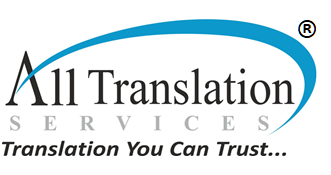Can Bilingual People Do Translation?
Today people are constantly upskilling themselves. One of the ways people do this is by learning new languages. On the other hand, some people are born into bilingual houses. Either way, knowing additional languages opens up several opportunities for jobs. However, when these people venture into the translation industry, it gets complicated. Using their knowledge of more than one language at schools or workplaces is one thing. But, using that knowledge to translate from one language to another is a whole different ball game.
Are Bilinguals Automatically Good At Translation?
Not really. It is common to think that bilinguals automatically translate from one language to another in their heads. However, they also often experience interference when it comes to switching from one language to another. That familiar feeling when you, a bilingual, cannot remember a word in any of the languages you know? That is interference. This can also happen with grammar or pronunciation. Also, a bilingual may sometimes automatically switch to their first or second language while speaking the other.
What Do Translators Have That Bilinguals Don’t?
Bilinguals may be good at two languages. However, here are a few differences between them and experts:
Translators are trained. They have a thorough understanding of the source text and the one they are translating into. Most of them even have degrees with which they gained this expertise. Therefore, when they change texts, they understand where they can go wrong. They know that each language has words that can have two meanings. Also, some words can have various meanings depending on the context. For example, in English, this could be the use of the words may or shall. This can be confusing to many people who speak English well. On the contrary, experts can avoid such words or aptly use them.
Translators understand the culture. As a part of their learning, experts also know that they should understand the culture of the source text to do their work properly. They also know the culture of the target audience. This enables them to use the right sentences and words. They also make small changes that are needed according to variations in culture.
Translators are good writers. They deal with written texts and know how to communicate their ideas in the written format. They know how to look at errors and catch details. However, all bilinguals may not be able to do so.
Thus, translators have the right training and experience to make use of the needed tools to produce faster results.
Does Being A Bilingual Help?
Initially, people thought that being bilingual confuses children. And, while bilinguals can experience some amount of interference, it is a minor issue that proper practice can solve. Thus, being bilingual certainly does help in the fact that the person has already demonstrated the ability to learn a language. However, becoming an expert means going one step further.
It is apt to say that all translators are bilinguals but not vice-versa. People need proper training and experience before they can become experts. So, while being bilingual can help, it is not nearly enough to produce quality translations.
